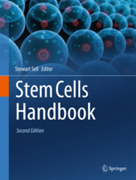
Discusses progress in stem cell research, including applications of pluripotent embryonic cells, induced pluripotent cells, oligopotent tissue stem cells and cancer stem cells Covers topics such as stem cell biology, stem cell ethics, development of techniques for applying stem cell therapy, and the technology of obtaining appropriate cells for transplantation Explores the role of stem cells in cancer and how therapy may be directed to cancer stem cells Stem Cells Handbook, second edition, emphasizes the advances in understanding and working with embryonic and fetal stem cells as well as induced pluripotent stem cells that show the most promise for clinical use. This new edition has been completely rewritten and updated to reflect the significant advances made in this field since publication of the first edition in 2004. The thirty-six chapters in this book – all written by recognized experts in Stem Cell research – reflect the tremendous progress in the understanding of stem cell biology and the appreciation of the potential for using stem cells for therapy of cancer, aging, injury and congenital diseases. Arguably the biggest advances have been made in obtaining different populations of stem cells, inducing mature cells to act like stem cells, and the ever-critical issue of how to get these stem cells to expand and differentiate into the tissue precursor cells that then can be used to replace lost of damaged tissues. No less exciting are the recent advances in understanding how stem cells function to maintain tissue integrity and how to use this knowledge to prevent developmental abnormalities. Other key topics discussed include: properties of tissue stem cells , transplantation of stem cells, the stem cell as a target for cancer treatment and prevention.
- ISBN: 978-1-4614-7695-5
- Editorial: SPRINGER VERLAG WIEN.
- Encuadernacion: Rústica
- Páginas: 534
- Fecha Publicación: 01/10/2013
- Nº Volúmenes: 1
- Idioma:
